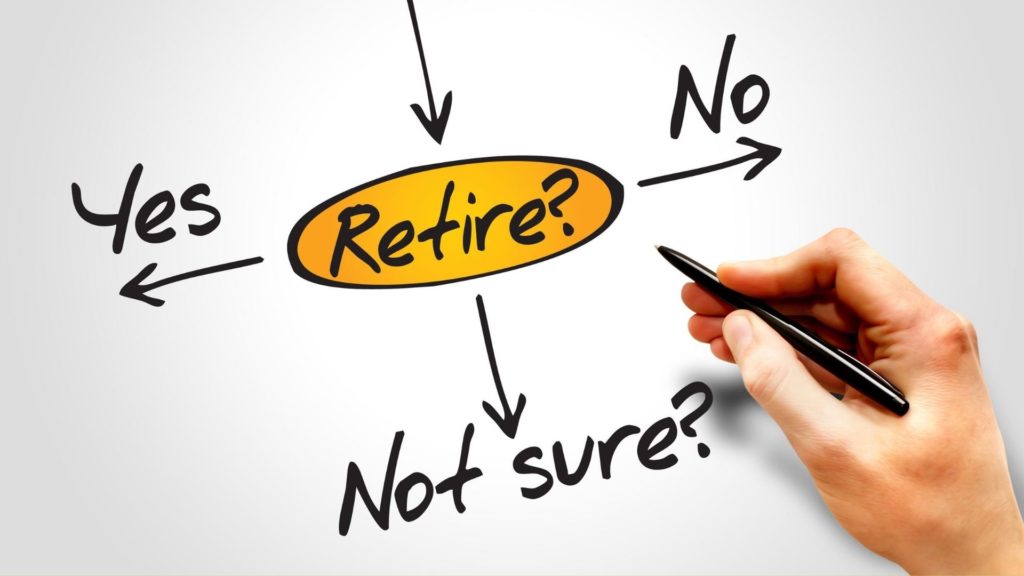Retirement is changing – and the pandemic is speeding that up
One thing that has fascinated me about the pandemic crisis is that it has speeded up many changes which were already happening, albeit slowly. One of these changes centres around retirement – which is now evolving at pace, thanks to the economic damage wrought by COVID-19.
I read a fascinating article in Forbes this week on this very subject. It’s about how the pandemic and its economic impact are playing havoc with the retirement plans and preparations of a generation of Americans.

The article is based around a new study which has found that “39% of American workers, some 68 million in all, are changing their retirement timing”. The research is a comprehensive five-generation retirement study by Edward Jones and Age Wave, including a survey of 9,000 North Americans conducted by The Harris Poll. It was timed to focus on how the pandemic is impacting retirement.
The retirement pandemic
A large proportion of those who are rethinking their retirement timing are planning to retire later, by over three years on average, for financial reasons. No surprises there – and more on this later in the blog.
A small proportion (just 10%) are planning to retire earlier than before. This is an interesting trend, but no less predictable than those planning to retire earlier. What are the reasons? Those surveyed said that the pandemic has shone a harsh light on their priorities, and made them realise perhaps that ‘life is short’, and that they don’t want to put off the ‘freedom of retirement’ any longer.
The slower pace of life in lockdown has given this group a taste of what retirement could be like. Although I would argue here that this ‘slice’ of slow living isn’t necessarily reflective of what 20 or 30 years of ‘doing nothing’ would look like…
The article goes on to explore the rising age of retirement in the US: “The average age at which Americans currently retire has risen to 65, a level not seen in 50 years. For sound demographic reasons, starting with increased longevity, the “full retirement age” for Social Security benefits is being calibrated upwards”.

People get that they need to work longer to fund longer retirements – after all, these days, we could spend a third of our lives retired!
So we’re all going to be working longer, typically part time. Forbes states that “The labor force participation rate of Americans age 65 and older has risen to 20%”. This is higher than in 50 years, and age 65+ is the fastest growing segment of the workforce, and Rand Corporation research reveals that 40% of workers 65 and older had stopped working for a while and then ‘unretired’.
The fiction of retirement
This is music to my ears as I ‘unretired’ myself. I firmly believe that the idea that retirement is some ‘holy grail’ is a fiction. In fact, in my mind, there are three myths about retirement that many people believe – and I did too.
The first is that retirement was created for the greater good of individuals, whereas in fact the first pensions were actually introduced by Caesar Augustus to secure the loyalty of the Imperial Roman army, then used by governments for social control – and later by corporates as a tool to lock in employees. Not quite the ‘slow living’ dream.
The second myth is that In retirement, you’ll have enough money. But unless you’re a millionaire, it’s unlikely you’ll be able to fund the lengthy retirement the article talks about.
And finally, probably the most important myth to bust is that retirement will make you happy and healthy, which is far from the truth too.
Invest in your passion
To hear a movement towards returning to work is encouraging. That said, it’s important for these ‘unretiring’ Americans to enjoy what they do. The Forbes article says that “the majority of retirees tell us they enjoy their work in retirement more than work in their earlier careers”.
I hope this is true. It concerns me that if older people are ‘unretiring’ and going back to work due to financial concerns, they may be going back to work they’re familiar with, but not necessarily what they enjoy.

Given that they could be working for another 10 or 20 years, I think that it’s important for them to invest in finding their passion and purpose. Why? Because monotony can have a hugely detrimental effect on us, physically and mentally. It’s one of the biggest ‘health hazards’ for my retirement age clients, whether they have stopped working or just continued in a job that they didn’t really enjoy.
After all, the human body comprises 50 trillion cells that need replenishing constantly. For this process to work, our bodies need energy and as we age, if we were to become inactive, mentally, physically or both, this would impact on our health.
In addition to this, in work that we’re not passionate about, we are deprived of constructive objectives, so our minds create negative objectives instead, such as worries about money or health, which will result in our bodies experiencing anxiety.
So what have we learned from this article and study? That the landscape of retirement has changed, irreparably.
What we all need to ensure though, is if we are going to continue to work, or ‘unretire’ and return to work, that we need to do so with a sense of passion and purpose – for our own sake, and the sake of our mental and physical health.
George Jerjian’s new flagship online course Dare to Discover Your Purpose is available now.
Books by George Jerjian

Dare to Discover Your Purpose is an innovative new online program designed to help you change the way you feel about this important but often misunderstood life stage.
Sign up now to be the first to find out more.